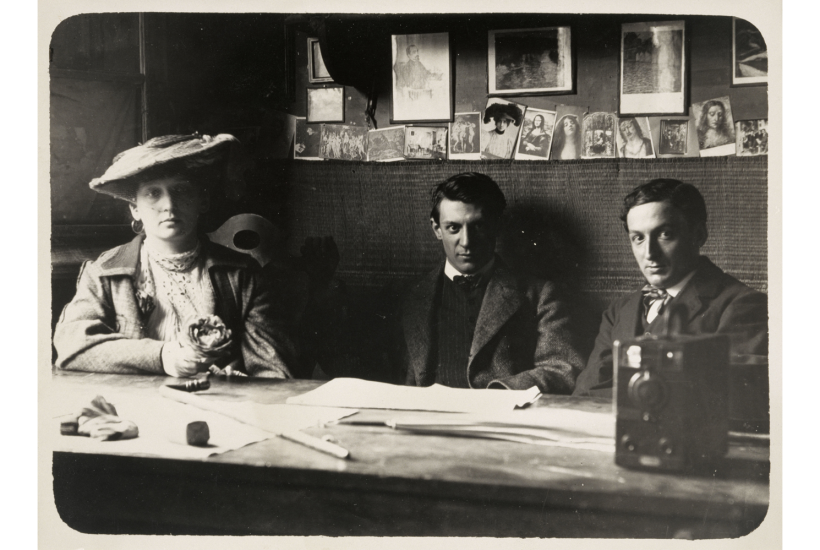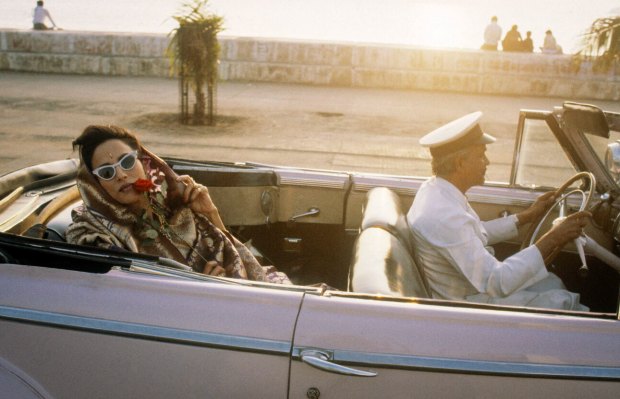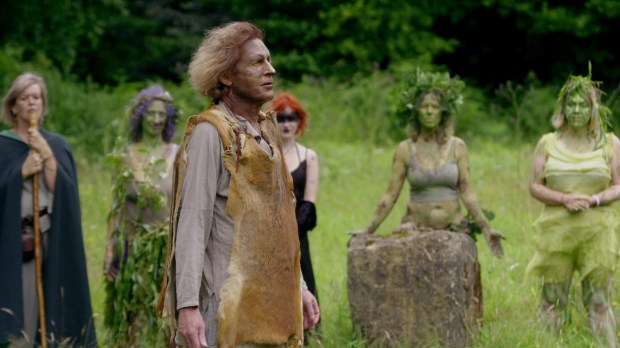Earlier this year, the Guardian took a break from arguing that ‘cancel culture’ is a right-wing myth to ask the question, ‘Should we cancel Picasso?’ He is, after all, ‘the ultimate example of problematic white guys clogging up the artistic canon’.
Given the programme’s title – and the BBC’s increasing loss of nerve – you could be forgiven for thinking Picasso: The Beauty and the Beast was bound to get bogged down in the same tedious and apparently non-mythical 2020s obsessions. Instead, Thursday’s first episode of three proved gratifyingly deft at dealing with them.
Much as we might wish otherwise, it would now be somewhere between odd and impossible for a Picasso documentary not to raise all over again the well-worn questions of his behaviour towards women and his use of African-art techniques to make money for himself. Having raised them, though, this one gave its answers with a mixture of no-nonsense briskness and even a touch of cunning.
On the women issue, for example, modern pieties were used against themselves, especially the one deeming that women should never be seen as victims. We were therefore told that Picasso’s first love, Fernande Olivier, was so strong, independent and empowered that it was very much her choice to agree to the conditions he put on their relationship: basically that she should give up more or less everything in her life, including her career, when they moved in together.
As for the African influence on ‘Les Demoiselles D’Avignon’, there was essentially nothing to see here. Artists have always been inspired by other work – so all talk of ‘cultural appropriation’ is, as Julian Schnabel starkly put it, ‘absurd’. The programme then got down to the more important business of discussing at length how great the painting is.
Happily, the same pattern remained in place throughout. The debates about Picasso’s failures to live up to our own impeccable standards continued to feel either merely dutiful or even rather impatient – while the programme’s heart continued to belong to such unfashionable virtues as thoughtfully tracing his life and work in the context of his times.
By the end, in fact, its obvious admiration for Picasso wasn’t easily distinguishable from adulation: so much so that it almost seemed half in love with the old goat (and maybe GOAT) itself. So far, Picasso has only messed around two women but, in looking forward to what happens next, one female critic explained with some exasperation that the impact he wanted to have on his lovers was that ‘the highlight of their lives would be Picasso’.
Unexpectedly however, this was followed by a firm suggestion that his aim might have been triumphantly fulfilled. A touching final scene showed us footage of the elderly, largely toothless Fernande Olivier in the 1950s knocking at the door of the apartment block she’d shared with the great man half a century before. ‘I would prefer that Picasso would have come to open it,’ she told the camera ruefully. ‘I was very happy here.’
At the other end of the TV-documentary spectrum, perhaps the weirdest of the many weird things about Sex: A Bonkers History is that, despite being such downmarket old tat, it’s somehow managed to bag as a presenter the high-flying – and, I would controversially argue, quite fun – Amanda Holden.
Monday’s opener began with a caption warning (or reassuring) us that the programme would contain ‘lots of sex’. Like so many women in their fifties these days, Amanda then boasted that she’s still impressively active in the sack.
The idea of the show – never a bad one of course – is to combine education and entertainment; the trouble in this case being that we get very little of the former and none at all of the latter. Instead, there’s just the melancholy sight of one item after another dying before our eyes – made more melancholy still by Amanda doing her plucky best to pretend she’s having a terrific time.
In this episode on the ancient world, the first moribund item was based on the supposed fact that all Spartan women were highly athletic goers. As a result, it featured Amanda at Crystal Palace sports centre throwing a javelin a few metres. The sense that most of the budget had gone on her fee received a further boost when she investigated the theory that Roman gladiators were the male pin-ups of their day by popping into a gym and putting a monitor on her finger to find out if her heart rate rose at the sight of men hitting punch-bags. (It didn’t.) For the Karma Sutra section, she watched a couple staring at each other for a long time so as to ‘balance their polarities’ – at which point even this troupiest of troupers couldn’t hide her boredom.
And with that, I imagine, she went off to yell at her agent…
Got something to add? Join the discussion and comment below.
Get 10 issues for just $10
Subscribe to The Spectator Australia today for the next 10 magazine issues, plus full online access, for just $10.
You might disagree with half of it, but you’ll enjoy reading all of it. Try your first month for free, then just $2 a week for the remainder of your first year.














Comments
Don't miss out
Join the conversation with other Spectator Australia readers. Subscribe to leave a comment.
SUBSCRIBEAlready a subscriber? Log in